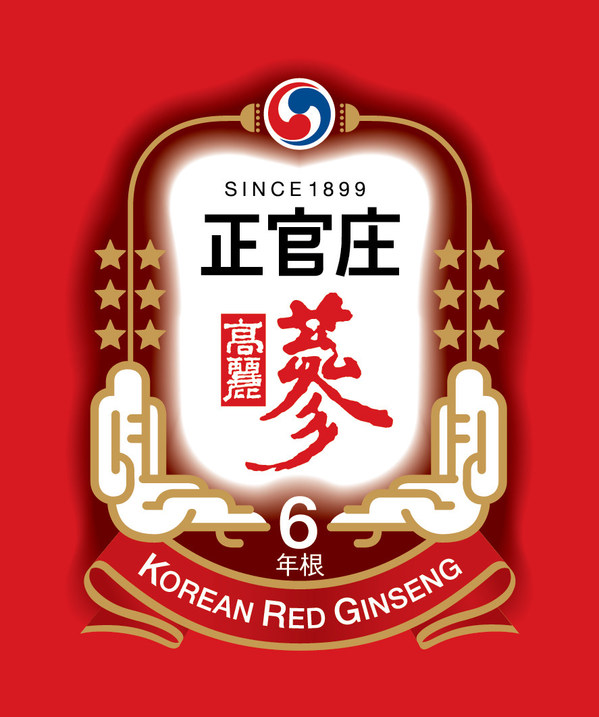Premium Red Ginseng Brand CheongKwanJang to Celebrate 122nd anniversary
ByPublished : Nov. 25, 2021 - 08:40

SEOUL, South Korea, Nov. 25, 2021 /PRNewswire/ -- Korea Ginseng Corp (KGC) celebrates the 122nd anniversary of its premium red ginseng brand, CheongKwanJang.
The best ginseng in the world, Korean ginseng became a premium red ginseng
The birth of CheongKwanJang
The history of the Korean government managing ginseng and red ginseng dates back to 1899, the 36th year of King Gojong's reign during the Korean Empire period. The empire established Samjeonggwa under Gungnaebu and executed a monopolization scheme to control the production and processing of ginseng and red ginseng.
The name CheongKwanJang was first used in the late 1950s when red ginseng export increased. The title was to differentiate genuine Korean ginseng from fakes produced overseas that attempt to steal the prestigious reputation of Korean red ginseng. The name implies trustworthiness and credibility of the brand whose products are processed and packaged in factories under the government's direct management. The implication is marked by the word Cheong in the title which means legitimate product.
Since then, the premium red ginseng brand's products have been exported to around 40 countries joining the ranks of Hallyu food (K-food) and making the brand to carry on the fame of Korean ginseng. Recently, the brand is beloved as a "leading brand of South Korea" sweeping awards of institutions and media outlets at home and abroad including the First Brand Award and Trust Company Award.
The Chinese government's decision to grant "famous trademark" status to the brand in March 2020 is noteworthy. The trademark status means the brand's renowned reputation and credibility and wide public awareness are specially acknowledged by the Chinese government. The status provides stronger legal protection than that of an ordinary trademark.
The leading red ginseng brand of South Korea has maintained its dominant position with a 70% share of the country's red ginseng market. CheongKwanJang, with the history of 120 years and legitimacy of Korean ginseng, has earned consumers' trust with thorough quality control over all steps of procurement of ginseng and production, distribution and sales of red ginseng products.
Superiority of the world-renowned premium ginseng, Korean ginseng
Korean ginseng refers to the plant grown in Korea. Ginseng is a medical plant and a member of the Araliaceae family. South Korean law defines the herb as a plant belonging to the Panax genus of the Araliaceae family. Its scientific name is Panax ginseng, with Panax being a compound Greek word consisting of Pan, which means everything and Axos whose meaning is treatment and medicine. Accordingly, Panax means all-healing. It usually takes six years for ginseng to reach maturity. Korean ginseng is the only plant of the Panax genus that takes on a human-like form as it grows.
Ginseng grows in cool areas. It requires shades in summer since as it dislikes exposure to high temperatures. The herb is also very sensitive to variations from ideal moisture levels. Ginseng farmers must be very precise in caring for the plants, and that's why people call ginseng an herb that grows with the sound of wind, water and foot-steps.
The major active ingredient of ginseng is a complex carbohydrate named saponin or ginsenoside. The growing environment determines a ginseng species' saponins composition. Korean ginseng has 37 types of saponins which far exceeds the diversity of the 14 types of Panax quinquefolius from North America and the 15 types of Panax notoginseng from China. Particularly, only Korean ginseng has ginsenosides Ra, Rf, Rg3 and Rh2.
The invention of red ginseng. Ancient Koreans' wisdom in keep ginseng fresh
Before red ginseng was developed, people used raw ginseng as medicine. However, with raw ginseng having 75% of moisture, it was difficult to store the plant for a long time since it easily decayed or its quality was impaired during distribution. Consequently, it was hard to preserve the value of raw ginseng.
The difficulty made ancient Koreans experiment with drying raw ginseng. They had two options, one to dry raw ginseng and the other was drying unpeeled and steamed ginseng. The former one was not suitable for keeping the root longer than a year. Thus, the latter ginseng-processing method was necessary and the outcome of the processing became known as red ginseng.
Red ginseng was developed to overcome the absence of adequate refrigeration, which restricted distribution, so the challenge was to be able to dry ginseng while maintaining its medicinal effect. While this method to produce red ginseng does keep the plant's freshness and medicinal effect for a long time, the scent seems to grow stronger with a longer time under cultivation.
Red ginseng has been loved by generations of South Koreans as an iconic dietary supplement. The process of steaming and drying 6-year-old ginseng produces saponins, red ginseng polysaccharides, amino sugars, minerals, etc. whose harmony effectively reduces fatigue. The combination of nutrition reduces the concentration of substances that cause fatigue while increasing energy-generating hormones. In addition, the nutrition improves the immune system by catalyzing macrophages's work which kills viruses and cancer cells.
Red ginseng was officially acknowledged for its healing effect by the Ministry of Food and Drug Safety, South Korea's governmental agency responsible for managing the safety of foods and drugs. Being acknowledged for its five major benefits of boosting the immune system, reducing fatigue, improving blood circulation, enhancing memory, and its antioxidative effect, red ginseng is the most widely sold dietary supplement in South Korea. COVID-19 has created a keen interest in the health of our immune system, so South Koreans continue to embrace red ginseng for its beneficial properties.






![[Exclusive] Hyundai Mobis eyes closer ties with BYD](http://res.heraldm.com/phpwas/restmb_idxmake.php?idx=644&simg=/content/image/2024/11/25/20241125050044_0.jpg&u=)
![[Herald Review] 'Gangnam B-Side' combines social realism with masterful suspense, performance](http://res.heraldm.com/phpwas/restmb_idxmake.php?idx=644&simg=/content/image/2024/11/25/20241125050072_0.jpg&u=)

![[Herald Interview] 'Trump will use tariffs as first line of defense for American manufacturing'](http://res.heraldm.com/phpwas/restmb_idxmake.php?idx=644&simg=/content/image/2024/11/26/20241126050017_0.jpg&u=20241126161719)







![[Today’s K-pop] BTS’ Jin single hits Billboard’s Hot 100 at No. 53](http://res.heraldm.com/phpwas/restmb_idxmake.php?idx=642&simg=/content/image/2024/11/26/20241126050076_0.jpg&u=)